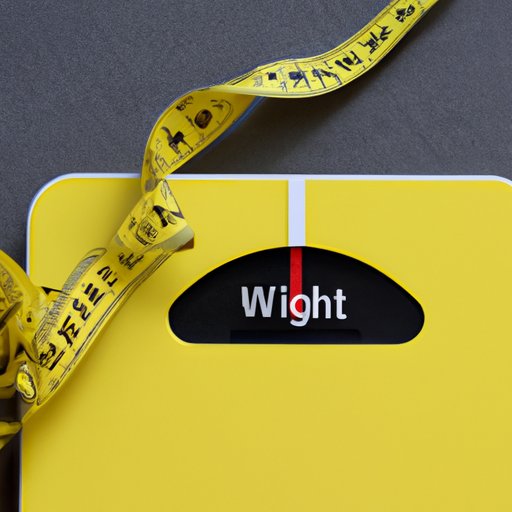
Introduction
Losing weight is a common goal for many people who want to improve their health and feel better about their bodies. However, what do you do when you notice that you are losing inches but not weight? This phenomenon, while confusing, is not necessarily a bad thing. Instead, it can be an important indicator of progress towards your health goals. In this article, we will explore why you might be losing inches but not weight, and why tracking progress through different methods is crucial to success.
Misconceptions about weight loss
When embarking on a weight loss journey, it’s common to think that the number on the scale is the only way to measure progress and success. However, losing weight is not always reflective of progress towards your goals. In fact, the scale can often be misleading and frustrating. This is because the scale solely tells you how much you weigh, and not what your weight is made up of.
Understanding the relationship between weight, fat, and muscle mass
The human body is made up of bones, organs, muscle, and fat. When people embark on a weight loss journey, they typically hope to lose fat while preserving muscle mass. However, this doesn’t always show up on the scale. It’s important to understand that weight loss, fat loss, and muscle gain may not always change at the same rate.
It’s important to understand that losing inches but not weight is not a bad thing. This can indicate that you’re losing fat but gaining muscle mass, which is more dense than fat and takes up less space in your body. This means that even though your weight may not have changed significantly, your body composition has improved.
Tips for tracking progress
To measure progress beyond the scale, it’s helpful to take progress photos or measure body parts such as your waist, hips, thighs, and arms. These methods can help you visualize your progress and can be a great motivator when you feel like you’re not making progress.
The role of diet and exercise
In addition to tracking progress beyond the scale, it’s important to focus on healthy habits such as nutrition and movement. A healthy diet and regular exercise are key components to both weight loss and fat loss. Strength training, in particular, is crucial in building muscle and boosting metabolism.
By working out with weights or using your bodyweight, you create resistance that strengthens your muscles. This leads to fat loss and an increase in muscle mass, which helps to boost your metabolism and burn more calories. This is important because the more lean muscle you have, the more calories your body burns at rest.
Personal stories and case studies
Personal stories and case studies can be a great source of inspiration. Many people who have experienced this phenomenon have found success by focusing on strength training and measuring progress beyond the scale. By sharing their success, they can motivate others to stay on track and not give up.
The impact of stress, sleep, and hormones
Finally, it’s important to understand that stress, sleep, and hormones can all be contributing factors to why you might be losing inches but not weight. Stress can lead to hormonal imbalances that can affect weight loss progress. Poor sleep habits can lead to a slower metabolism, making it more difficult to lose weight. Hormonal imbalances such as hypothyroidism can also affect body composition and weight loss.
Celebrating victories and focusing on overall health
While losing weight is a common goal for many, it’s important to celebrate all victories, no matter how small they may seem. Focusing on overall health and wellness is crucial to success and sustainability. This can include tracking progress, eating nutrient-dense foods, exercising regularly, managing stress, and prioritizing sleep.
Conclusion
In conclusion, losing inches but not weight can be a sign of progress towards your health goals. By understanding body composition, tracking progress beyond the scale, focusing on strength training, and prioritizing overall health, you can achieve long-term success. Remember to celebrate your victories, no matter how small, and not to give up on your health journey.




